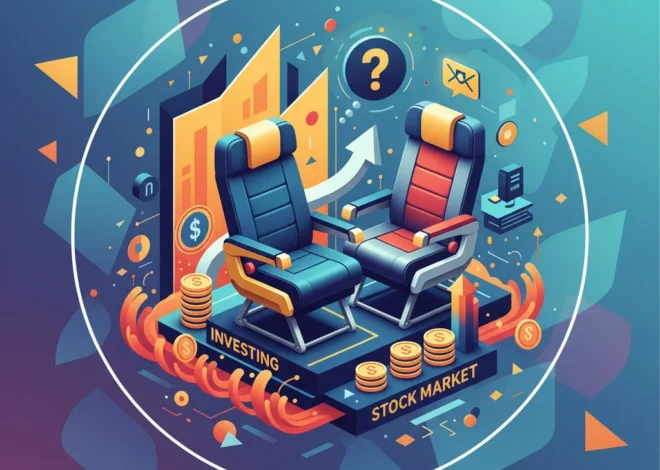
The Unseen ROI: Why Civil Disagreement on Campus is a Bull Market for the Economy
On the chaotic floor of a stock exchange or in the high-stakes environment of a venture capital pitch, the ability to analyze, debate, and defend a position is paramount. Fortunes are built and lost on the quality of an argument and the rigor of the underlying analysis. We in the world of finance, investing, and business pride ourselves on this relentless pursuit of alpha, driven by data, logic, and a healthy dose of contrarian thinking. Yet, the foundational training ground for these critical skills—the university—is often overlooked as a key indicator of future economic health.
In a recent letter to the Financial Times, Professor Randy Boyagoda of the University of Toronto touched upon a vital, yet increasingly fragile, concept: the university as an “environment of civil disagreement.” He argues that higher education should be a place where students learn “how to disagree with one another about important matters in a serious and searching and mutually respectful and accountable way.” This seemingly academic ideal is, in fact, one of the most critical long-term investments we can make in the stability of our markets and the dynamism of our economy.
The Marketplace of Ideas and the Financial Market: A Striking Parallel
The core principle of modern finance is the Efficient Market Hypothesis, which posits that asset prices reflect all available information. This efficiency relies on a vast ecosystem of diverse participants—analysts, traders, and investors—all disagreeing with one another. A bull argues for growth, a bear for caution. Their collective, competing analyses create a dynamic tension that, ideally, leads to accurate price discovery. When one viewpoint becomes too dominant and disagreement is silenced, we get bubbles and catastrophic crashes.
A university should operate on a similar principle: as a marketplace for ideas. In this arena, theories of economics, models for financial technology, and strategies for corporate governance are the assets being traded. Civil disagreement is the mechanism of price discovery. When students are encouraged to rigorously challenge a professor’s economic model, debate the ethics of a new fintech application, or question the assumptions behind a corporate valuation, they are engaging in the intellectual equivalent of market trading. They are stress-testing ideas to find their true worth.
Conversely, an academic environment that discourages dissent and promotes intellectual conformity creates a “bubble” of ideas. Graduates emerge without the intellectual immune system needed to identify flawed logic or groupthink. They become susceptible to the same manias that have plagued financial markets for centuries, from Tulip Mania to the Dot-com bust. A study from McKinsey highlights that companies with greater diversity (including cognitive diversity) are significantly more likely to outperform their less diverse peers, a testament to the power of varied perspectives in decision-making.
Beyond the Cap and Gown: Why the UK Graduate Hiring Slump is a Red Flag for the Economy
The High Cost of Intellectual Monoculture in Finance and Economics
The 2008 Global Financial Crisis serves as a chilling case study in the dangers of intellectual monoculture. A widespread consensus formed among leading banks, rating agencies, and even regulators that complex mortgage-backed securities were safe, high-yield investments. Dissenting voices, though present, were largely marginalized. The intellectual environment lacked the robust, civil disagreement that could have exposed the fatal flaws in the system before it was too late. The resulting economic collapse was not just a failure of regulation, but a failure of critical inquiry on a massive scale.
Today, we face new, complex challenges that demand this skill more than ever. Consider the rise of financial technology (fintech) and blockchain. Are cryptocurrencies a revolutionary new asset class or a speculative bubble? Is algorithmic trading making markets more efficient or more fragile? These are not simple questions with easy answers. They require a generation of finance professionals who can:
- Analyze complex systems from multiple viewpoints.
- Identify and articulate hidden risks.
- Engage in constructive debate with those holding opposing views.
- Adapt their thinking when presented with new evidence.
Without a foundational education rooted in civil disagreement, we risk raising a generation of leaders who can only optimize within the existing paradigm, rather than challenge and reshape it. The skills honed in a rigorous university seminar are the very same skills needed to navigate a volatile stock market or build a resilient investment portfolio.
To illustrate the tangible impact of these different educational approaches on the financial sector, consider the following comparison:
| Core Competency | Fostered by Civil Disagreement | Fostered by Intellectual Conformity |
|---|---|---|
| Risk Management | Views risk from multiple angles; encourages “devil’s advocate” scenarios and stress-testing of assumptions. | Prone to groupthink; overlooks non-obvious risks and focuses on consensus view. |
| Innovation & Fintech | Challenges existing banking and trading models; fosters disruptive thinking needed for true innovation. | Focuses on incremental improvements to existing systems; resistant to paradigm-shifting ideas like blockchain. |
| Economic Modeling | Questions the assumptions of dominant models; explores alternative economic theories. | Accepts prevailing economic models without question, leading to potential policy and investment blind spots. |
| Client Advisory | Understands and articulates diverse market perspectives to provide nuanced, resilient financial advice. | Offers advice based on popular trends, potentially exposing clients to herd-behavior risks. |
Forging the Future: The Engine of Financial Technology and Innovation
The world of financial technology is defined by disruption. Startups are challenging centuries-old banking institutions, blockchain technology is rethinking the very nature of transactions, and AI is automating trading and investment decisions. This constant state of flux is anathema to a conformist mindset. Progress in this sector is driven by a fundamental disagreement with the status quo.
The innovators who built today’s fintech giants did not succeed by accepting the financial world as it was. They questioned it. Why does an international money transfer take three days and cost 5%? Why is access to investment capital limited to a select few? Why can’t banking be as seamless as a social media app? These questions are acts of productive, civil disagreement with established norms.
For business leaders and investors, this has a direct impact on the talent pipeline. A PwC report on the future of financial services emphasizes that the biggest challenge is not technology, but people and culture. The industry needs individuals who can navigate ambiguity and challenge legacy systems. These are not skills that can be easily taught in a corporate training seminar; they must be cultivated over years, in an educational environment that values intellectual sparring and rewards critical thinking over rote memorization.
Trump's Argentina Ultimatum: How One Election Could Reshape Global Finance and Investment
An Actionable Mandate for Investors and Business Leaders
This is not merely an academic debate; it is a strategic economic imperative. For those of us in leadership positions in finance and industry, there are clear, actionable steps to take:
- Rethink Hiring and Talent Development: When interviewing candidates, prioritize demonstrated skills in critical thinking and constructive debate over mere conformity to a specific academic pedigree. Look for individuals who can articulate not just what they think, but how they think and how they handle disagreement.
- Direct Corporate Support Strategically: When allocating corporate philanthropy or forming university partnerships, look beyond the brand name. Invest in programs, institutes, and initiatives that explicitly champion free inquiry, intellectual diversity, and the principles of civil disagreement. This is a direct investment in the quality of your future workforce.
- Champion this Culture Internally: Foster a corporate culture where respectful dissent is not just tolerated but encouraged. The best investment decisions and business strategies emerge from teams where ideas can be rigorously challenged without fear of reprisal. This internal culture will attract the best talent coming out of universities.
A recent survey by the Foundation for Individual Rights and Expression (FIRE) revealed that a significant number of students feel they cannot express their true opinions on campus for fear of social or academic consequences (source). This should be a red flag for every CEO, investor, and board member. It signals a potential constriction in the pipeline of talent equipped to handle the complex, ambiguous challenges of the modern global economy.
The Point of No Return: Why Climate Tipping Points Are Reshaping Global Finance and Investing
Conclusion: The Ultimate Long-Term Investment
The principles of a liberal arts education, as articulated by Professor Boyagoda, are not a quaint luxury disconnected from the “real world” of finance and economics. They are the very bedrock upon which a resilient, innovative, and prosperous economy is built. The ability to engage in civil disagreement is the foundational skill that powers everything from astute stock trading and robust risk management to disruptive fintech innovation.
As leaders and investors, we are constantly searching for undervalued assets with long-term growth potential. Fostering and funding educational environments that cultivate civil disagreement may be the most significant, high-return investment we can make. It is an investment in a future workforce that can think critically, a future economy that can withstand shocks, and future financial markets that are more efficient, innovative, and stable. The dialogue on campus today truly is the economy of tomorrow.


